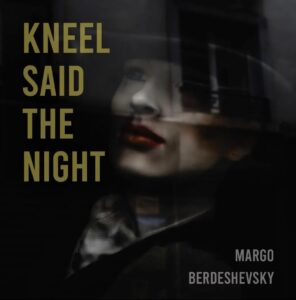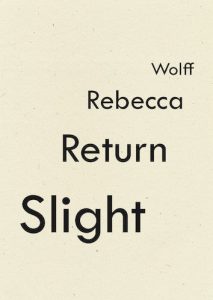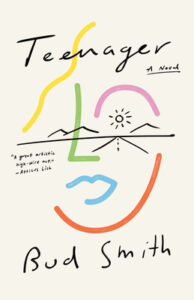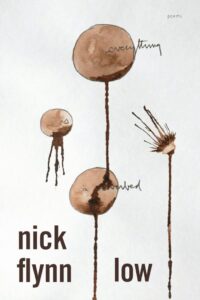Hybrid. 130 pgs. Sundress Publications. November 2022. 9781951979423.
From its gorgeous cover to its final author’s note (fittingly circling back to the epigraph from Zora Neale Hurston, “No hour is ever eternity, but it has its right to weep”), Margo Berdeshevsky’s Kneel Said the Night is evocative, sensual and sensuous, passionate, performative, reflective, grieving, memorializing, not quite angry—or is it?—often surprising, even mysterious, in its turns of mood and image: a gathering of “the voices that are in me,” Berdeshevsky writes in “Half Notes,” the introductory piece, “in these ragged months of global ache.”
Presented as a hybrid, Kneel Said the Night brings together pieces that can be read as poem, short fiction, essay, tale, even fairy tale, along with photographs, photocollages, drawings—but in whatever length or form each arrives, the voice we hear is a cry into the darkness, into the night of this falling world, from a vital, mature, female sensibility, demanding that we not forget—not the traumas we continue collectively to experience and witness, not the lives taken and lost, not the terrors to come, not the beauties either.
“I’m dying now, and if I wake tomorrow, it will be another life,” the opening speaker says as she remembers a practice of her childhood. Is this speaker Berdeshevsky? Yes. Is it not Berdeshevsky? Also yes. “I’m one of millions,” she writes, “daring to ask without answers,” and soon, “I don’t know who I am becoming. And the great unknowing sits on my shoulders—yours—ours—without wings.”
Berdeshevsky peoples Kneel Said the Night with women and lovers, girls and gardens, cats and birds, forests, floods, farms, cities, suns, moons, the living, the dead, and, always, survivors—of dangers and joys, of violence and ambiguity, of tensions and harmonies between passion and aging, sex and God and death. “I used to sit with old women. I thought I needed to learn how to become one,” begins a reflection on aging in “Half Notes,” and later, on lost and continuing love: “I’d been so in love with him, last year… my heart cracked the way hearts do, at any age… With a sense of so many endings. Which one to believe?” In “My Own…My White Plume,” “She wants to kill God. Otherwise, she’s a good person.”
In “Stand,” Berdeshevsky writes, “The forests are collapsing inside the body”: one of many images that break down the separation of inside and outside, self and world. A recurring refrain: “I’m the woman who asks how close is death, how near is God… I’m the woman who’s walking.”
The longer, dramatized narratives, fictions with characters engaging in action as well as giving lyrical voice, invite us as readers also to see ourselves, whether by contrast or identification, or both. This accomplishment is partly technical, the consequence of a strategic movement from I to she and you and back again, but beyond technique, this necessity of reading as into a mirror follows from Berdeshevsky’s gentle insistence everywhere that we face what we dread and what we love, what we have lost and what we continue losing.
From “My Own…White Plume”: “We avoided the light, she remembers. I was afraid of your eagerness, he remembers…. We were old souls, ready to murder one another again.” After cataract surgery, “a slow return to seeing the clarity of her century.”
“Once upon a time, “ begins “Ends of the Rain,” a long tale of two emerald-eyed brothers, in which almost immediately, “Silence, the word like a boulder, stayed. First, it was a good silence. And then it was not.” And this “not” becomes overwhelming in its violence.
“Not memory, but the dust of memory—” begins “Of Remembered Septembers,” the following very short prose poem, before a series of tales of cruelties to animals and children, of solitudes and dreams, and the rape of a vagabond poet—a she who has been an I—who “slept on different couches and random strangers’ beds, hippie years, post-hippie years, lost woman years. A believer in words she’d found knifed into a wall in a distant man’s stairwell: Be not inhospitable to strangers lest they be angels in disguise…”
Although Margo Berdeshevsky and I have never met, we developed a mutual appreciation online after I reviewed her luminous 2013 collection Beautiful Soon Enough, and we have become fans of one another’s work. I confess, then, that I came to Kneel Said the Night predisposed to celebrate and ready to encourage new readers to discovery of this most vital, mature, and emotionally demanding of writers.
This multifaceted collection—I want to call it an oratorio, for all its varieties of voice and mood—culminates in dramatized memories of a daughter and a dying mother, a fearless suicide, and again of sex, desire and violation, a daughter in the cemetery of skulls in Naples, where “An is and an isn’t hover like the birds you can’t see. It’s your birthday. You don’t run. You don’t move. You allow a kiss. You have allowed a kiss. Against a damp earth wall. I know you want to be loved.”
A rape may or may not occur here, perhaps depending on your definition and understanding of the word, but even more on the speaker’s own doubt and even delicacy (“Yes, you said. Didn’t tell him that it was your birthday. Didn’t die. He didn’t kill you. He left you… And you are so much more frightened of being alive”), and a similar ambiguity, or ambivalence, runs throughout the memory pieces, throughout the accumulation of tales in their fragmentation, like a diamond of many facets, becoming a portrait of the artist as a no longer young woman, and a portrait of her world, which is also our world, beginning and ending in the first-person voice of the poet, and death itself the only certainty in her songs—death and feeling itself: “She had never been heart-smashed, just angry at what she’d left, just ravenous for a passionate life.”
Kneel Said the Knight is available through Sundress Publications. Purchase it now through their website.
Like what you’re reading?
Get new stories or poetry sent to your inbox. Drop your email below to start >>>
OR grab a print issue
Stories, poems and essays in a beautifully designed magazine you can hold in your hands.
GO TO ISSUESNEW book release
Ghosts Caught on Film by Barrett Bowlin. Order the book of which Dan Chaon calls “a thrilling first collection that marks a beginning for a major talent.”
GET THE BOOK



